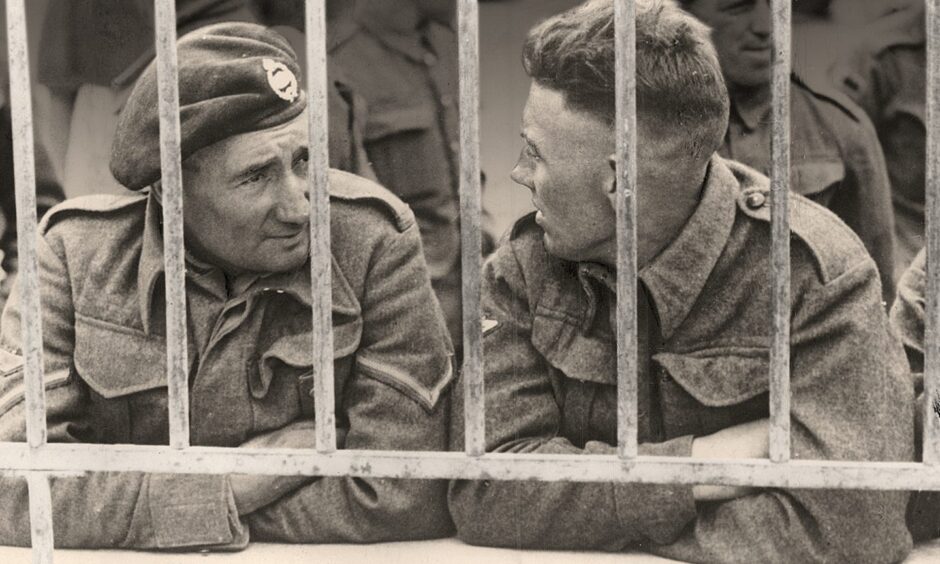
With the tragic war of attrition raging in Ukraine, we can’t forget that less than 85 years ago Europe was tearing itself apart in World War Two.
In an inevitable by-product of war, more than 170,00 British servicemen were taken captive by German and Italian forces during the war, mainly in France, North Africa and the Balkans.
The experiences of Allied prisoners in camps like the Stalag Lufts in Poland and Colditz in Germany during World War Two have been documented in films, carrying with them a whiff of sanitising celluloid glamour.
But the reality was horrific, as north-east soldiers returning home from the Balkans were able to relate in February 1945.
“All of them have experienced great physical hardship. Most of them have seen incidents of stark horror in the modern tragedy of Greece,” the Aberdeen Weekly News reported.
POW soldiers in Greece told how children were issued with rifles
Among them were Leading Aircraftman David Milne of Chestnut Row, Aberdeen, Lance Corporal Con Miller of Commerce Street, Aberdeen and Aircraftman Charles Dalgarno of Baltic Street, Aberdeen.
They had been released from Greek prison camps and were home on a month’s leave.
David Milne said: “Many of us suffered from cold and exposure. If it had not been for the RAF machines which dropped medical supplies, food and blankets, a great many would have succumbed.”
He then starts to add spine-chilling details about his experience.
“Some of the guards were very young people —boys and girls who had just been issued with rifles, which they took delight in firing for fun.
“They acted like schoolchildren and were absolutely irresponsible.
“The girls were as bad as the boys.”
David was 25 and a former pupil of Robert Gordon’s College. He’d been in the RAF throughout the war.
Missing, presumed POW
His family knew he was missing, presumed a prisoner of war in Greece.
In a letter to his sister in Edinburgh, David said he had been released after five and a half weeks’ captivity.
Con Miller was captured at Kifissia shortly before Christmas 1944, and talked powerfully of the struggle for adequate food.
For more than a month he had been with around 80 POWs packed into a church with some Greek civilian hostages, and virtually starved.
No food for hours
“Hours went past without any food being given us. We stuck it as long as we could and then began to kick up a row.
“About midnight, when we were all trying to get some sleep, the guards came in with three dustbins packed with crusts of bread.
“I can still remember the way we clutched and clawed at those bins like wild animals. It was every man for himself and I’m afraid some went hungry.”
Con was captain of the Banks o’ Dee junior football club when war broke out in 1939.
He hadn’t been home for three years, with his infant son now four years old at his homecoming.
In civilian life he had been a compositor with Lewis Smith & Son Printers of Aberdeen.
A/C Charles Dalgarno described the terrible 200-mile forced march he had endured to a mountain compound at Lazarino, along snow-bound roads, with insufficient food and clothing.
“For twelve nights, I hadn’t a place to lie down,” he said.
Charles had been a commercial traveller with Gordon and Sutherland of Aberdeen before being called up three years earlier, two of those spent abroad.
Bread and water
“If you took off your great coat or boots you were liable to have them stolen by the guards,” he said. “The bill of fare was bread and water.”
And the prisoners recounted that the guards’ treatment of Greek civilian prisoners was appalling, with some shot and many dying by the wayside.
More like this:
1940s P&J clippings reveal reality of wartime life in Aberdeen and the home front
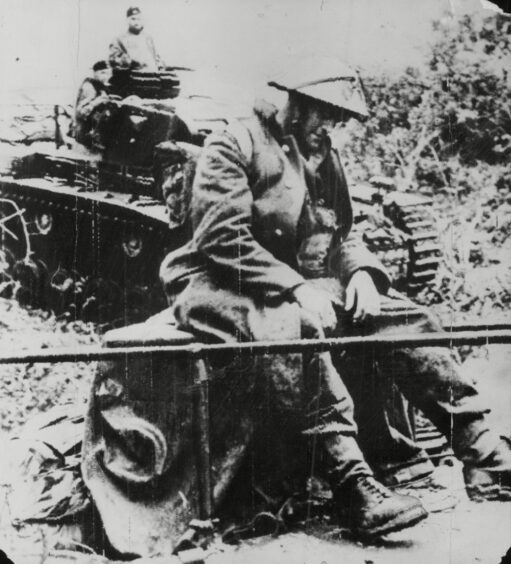
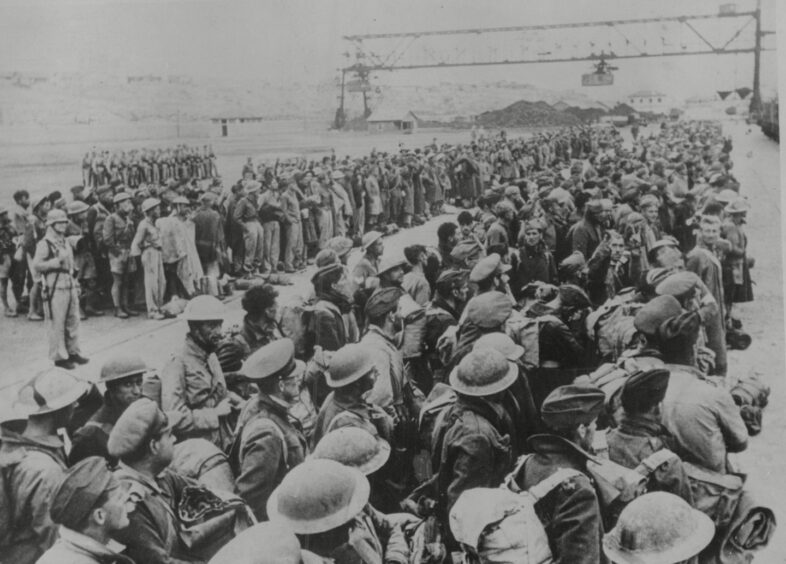
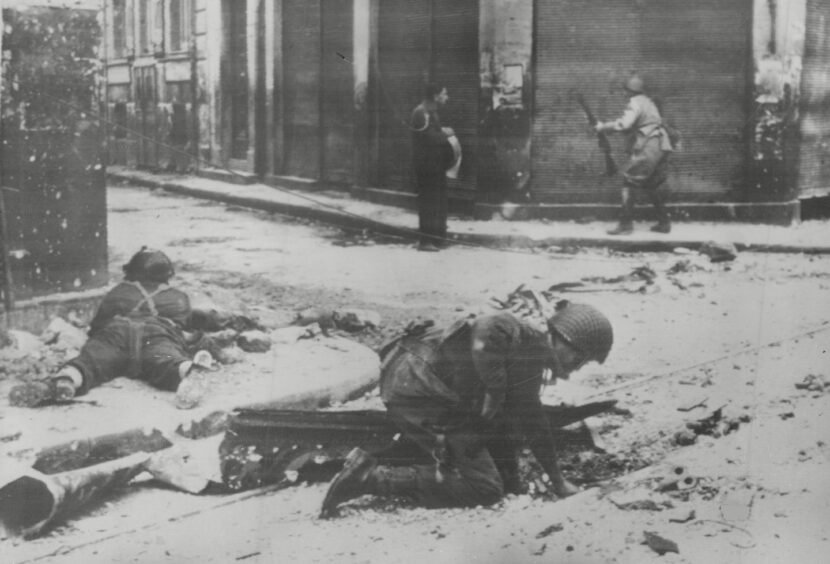
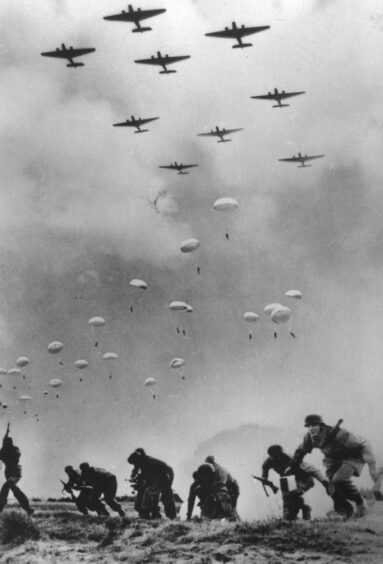
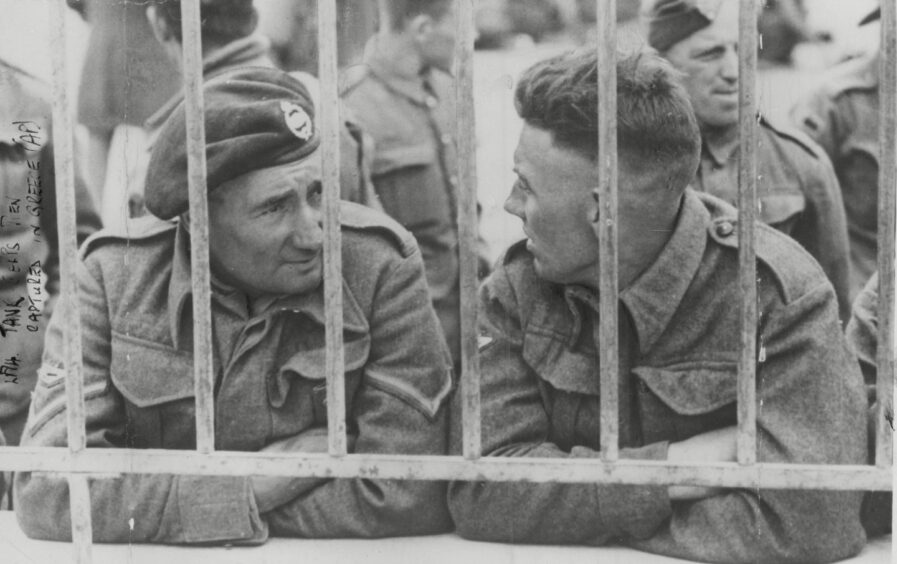
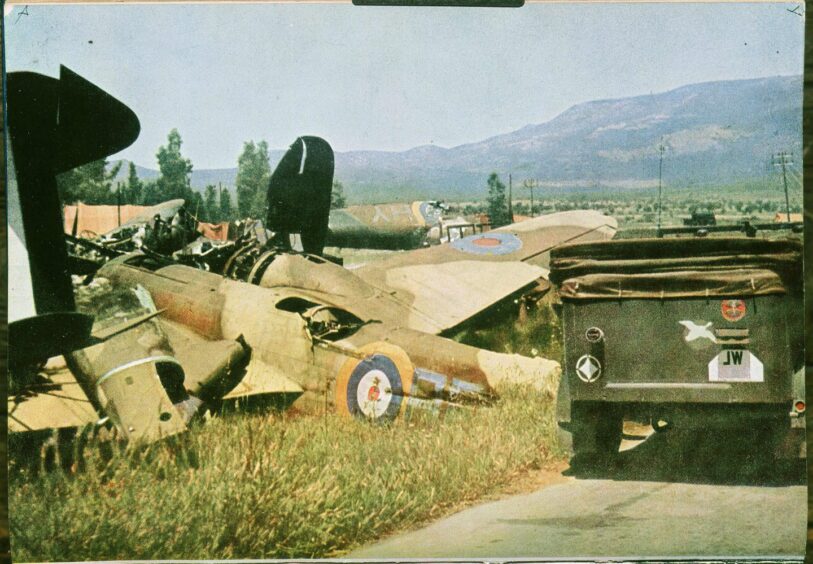
Conversation